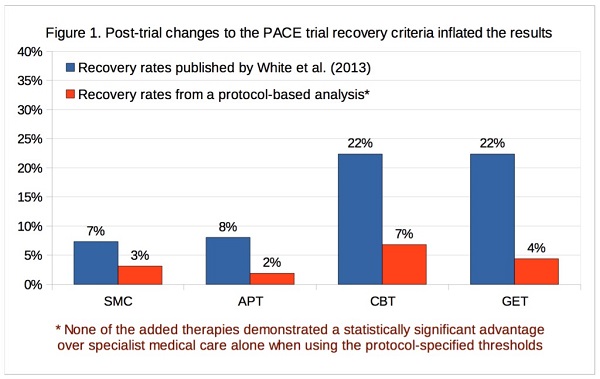
After years of treating Chronic Fatigue Syndrome like a psychological disorder and telling people that they could exercise their way out of it, a new thinking has now emerged after a re-analysis of the PACE trial data. Read on to find out more:
The Lancet study on Chronic Fatigue Syndrome:
In September 2016, authors of a Lancet paper study on Chronic Fatigue Syndrome (CFS) which was released in 2011, revealed their raw data. Independent scientists such as David Tuller and several patients analyzed this data and published their findings on a Virology blog hosted by Vincent Racaniello.
In the initial 2011 Lancet paper (coined the PACE trial), it said that graded exercise therapy (GET) and cognitive behavioural (CBT) therapy were the recommended treatment options for patients with CFS or Myalgic encephalitis (ME). ME is the international acronym for the disease, and if often differentiated from CFS based on diagnostic criteria. The study examined 641 patients and how they reacted to different therapies over a period of 12 months. The study reported that following their treatment methods of GET and CBT would provide 60% chance of getting better and a 20% chance of recovery.
Findings of the PACE trial:
David Tuller, a lecturer in Public Health at University of California spent a year investigating the 2011 results and wrote an expose illuminating it’s many scientific flaws on the Virology blog. The blog host and 41 other scientist then wrote an open letter to the Lancet demanding an independent study of the PACE trial.
The legal system and Freedom of Information Act coerced the raw data to be released. Data analysis soon showed that if a CFS patient is already receiving standard medical care, trying other treatments helped only by 10 percent and any chances of full recovery were zero. The graph below shows the difference in results post analysis of the PACE trail statistics. As seen in blue, the results were incorrectly inflated to show favorable recovery rates.

In July of 2017, CDC finally dropped graded exercises therapy and special cognitive behavioural therapy from its recommended treatment for CFS on its website. This was significant the world over.
Opinions:
Julie Rehmeyer a writer and CFS patient calls the PACE study ‘bad science’! She records feeling skeptical when the study first came out because she knew firsthand that even mild exertion exaggerated symptoms of her disease. She soon figured out that rest and not continual daily exercise was the best treatment for her variable tiredness. Additionally cognitive behavior therapy did more damage as it would further ignore patient’s symptoms and challenge their beliefs.
The National Academy of Medicine in 2015 termed CFS as a ‘highly debilitating organic disease with exertion intolerance’. They concluded that the disease was not psychological but a physiological one, where increased or even minimal physical activity would be counter-productive.
David Tuller who has penned several articles questioning the study, remarks that overexertion in fact causes relapses and several patient surveys have indeed reported getting worse post graded exercises.
A BMJ editorial by Fiona Godlee said “Such independent reanalysis and public access to anonymised data should anyway be the rule, not the exception, whoever funds the trial.”
Recommendation:
CFS is now recognized not as a psychological disorder, but a long-term immune illness. Doctors and science papers now refer to it as “CFS/ME”. Patients are advised to ask their doctors to now take them more seriously.
- The revised CDC guidelines encourage patients to consult their healthcare provider and devise an individual management strategy and avoid over-exertion.
- Doctors are advised to do a thorough personal and clinical examination of the patients and review pre and post treatment trials.
- Ask your doctor for tailored treatment based on evidence and patient surveys.
- Young patients may require a team of healthcare workers to assist with learning and social issues.
- Remember that there is no cure for CFS. Try to tackle each symptom with home and medical remedies. For example, for sleep problems create a sleep routine, avoid caffeine and daytime napping.
- Consult different specialists. For joint or muscle pain, reach out to a pain specialist and physiotherapist. Try acupuncture, massage etc. for pain relief.
- Take the easy route! Try online shopping and home deliveries whenever possible.
Original Article:
Comparison of adaptive pacing therapy, cognitive behaviour therapy, graded exercise therapy, and specialist medical care for chronic fatigue syndrome (PACE): a randomised trial. White et al. The Lancet: Volume 377, Issue 9768, 5–11 March 2011, Pages 823-836.
Original Blog:
No ‘Recovery’ in PACE Trial, New Analysis Finds. 21 Sept 2016. http://www.virology.ws/2016/09/21/no-recovery-in-pace-trial-new-analysis-finds/






